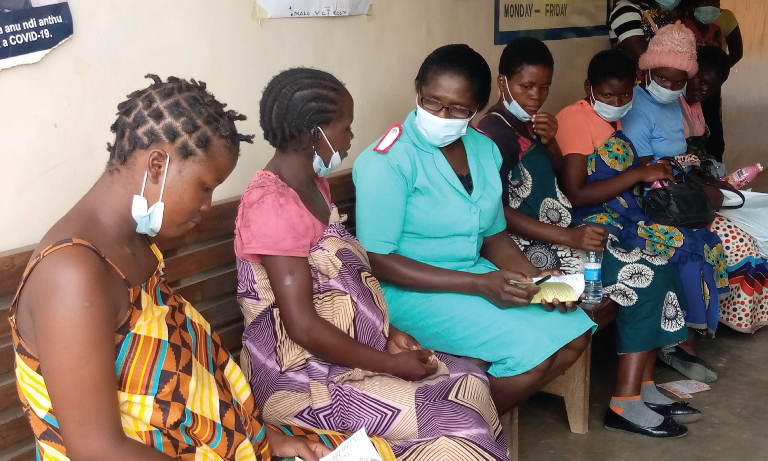Keeping girls in school, reducing martenal woes
Alinafe Tembo of Chanthomba area in Mzimba feels lucky for being exposed to sexual and reproductive health rights (SRHR) messages early.
“I got life skills to make informed decisions about my body and future, so I can resist peer pressure, including sexual relationships likely to ruin my future,” says the Standard Eight girl at Kazengo Primary School.

This saved the 14-year-old girl in September 2020 when 13 000 teen girls fell pregnant and 40 000 got married during the prolonged school closure due to Covid-19 pandemic.
She is one of almost 20 000 adolescents reached with SRHR messages in Mzimba South by A girl, Not a Mother project implemented by Save the Children Malawi. The project funded by Medhum through Save the Children Norway prevents teenage pregnancies by increasing uptake of SRHR services among the youth.
The initiative backed by Mzimba South District Health Office has reached 3 000 teenagers with SRHR services through outreach clinics as well as youth clubs and community-based agents who provide their peers contraceptives discreetly.
The change agents also tackle myths and misconceptions about sex and contraception.
Tembo hopes the interventions will help her stay in school until she realises her dream of becoming a medical doctor.
She says: “I resist peer pressure and there is easy access to contraceptives to avoid pregnancy and sexually transmitted infections [STIs].”
Deputy headteacher Prisca Mwenda says safeguarding girls helps increase their school completion rates.
“This helps us to provide education to more children, especially girls whose safety from early pregnancies has been improved,” she says.
Project manager Chimwemwe Mpunga says it is a pity that 30 percent of all infant deaths occur to teen mothers.
“They are not mature, and often give birth to premature and low-weight babies. They are at higher risk in the first 28 days and usually resort to unsafe abortions,” she says.
Teenage pregnancies contribute to rampant school dropout rates and illicit child marriages marred by violence.
The Malawi Demographic and Health Survey of 2015 shows that a third of Malawian girls fall pregnant by their 19th birthday.
Angella Banda, a teacher at Kalitubi Primary School says erotic lessons at initiation ceremonies entice girls into premarital sex and deep-rooted misconceptions about contraception expose them to unsafe sex fuelling early pregnancies and marriages.
“Only four girls sat for the 2020 Primary School Leaving Certificate of Education examinations. Many dropped out due to pregnancy,” she says
Save the Children activities works with teen mothers and mother groups to reduce pregnancy-related deaths and complications.
The mother groups and community care groups identify pregnant adolescents and give them pep talk and support to give birth safely at the nearest health facility.
Jesse Mwale, mother group chairperson at Mzimba LEA Primary School, says: “Apart from helping girls with hygiene, sexual health and safety, we give physical, moral and psychological support to pregnant girls and support them to get back to school after giving birth.”
The group has terminated 10 child marriages and re-enrolled 31 teen mothers who dropped out.
Mwale says pre-delivery meetings offered by health workers help save lives of teen mothers and newborns.
Flora Kondowe, 17, is six-month pregnant. She says: “I was motivated to start antenatal visits in the first three month of my pregnancy.
“I will deliver at the hospital for my good safety and health, including of the child so that I can go back to school afterwards.”
Mzimba South district deputy safe motherhood coordinator Daniel Mulenga says the project has helped health worker reach out to more young people with SRHR services even in hard-to reach areas.
“Demand for the services has increased and we have registered reduced maternal and newborn mortality and morbidity as more seek antenatal care, and give birth at clinics and the hospital,” he states.




